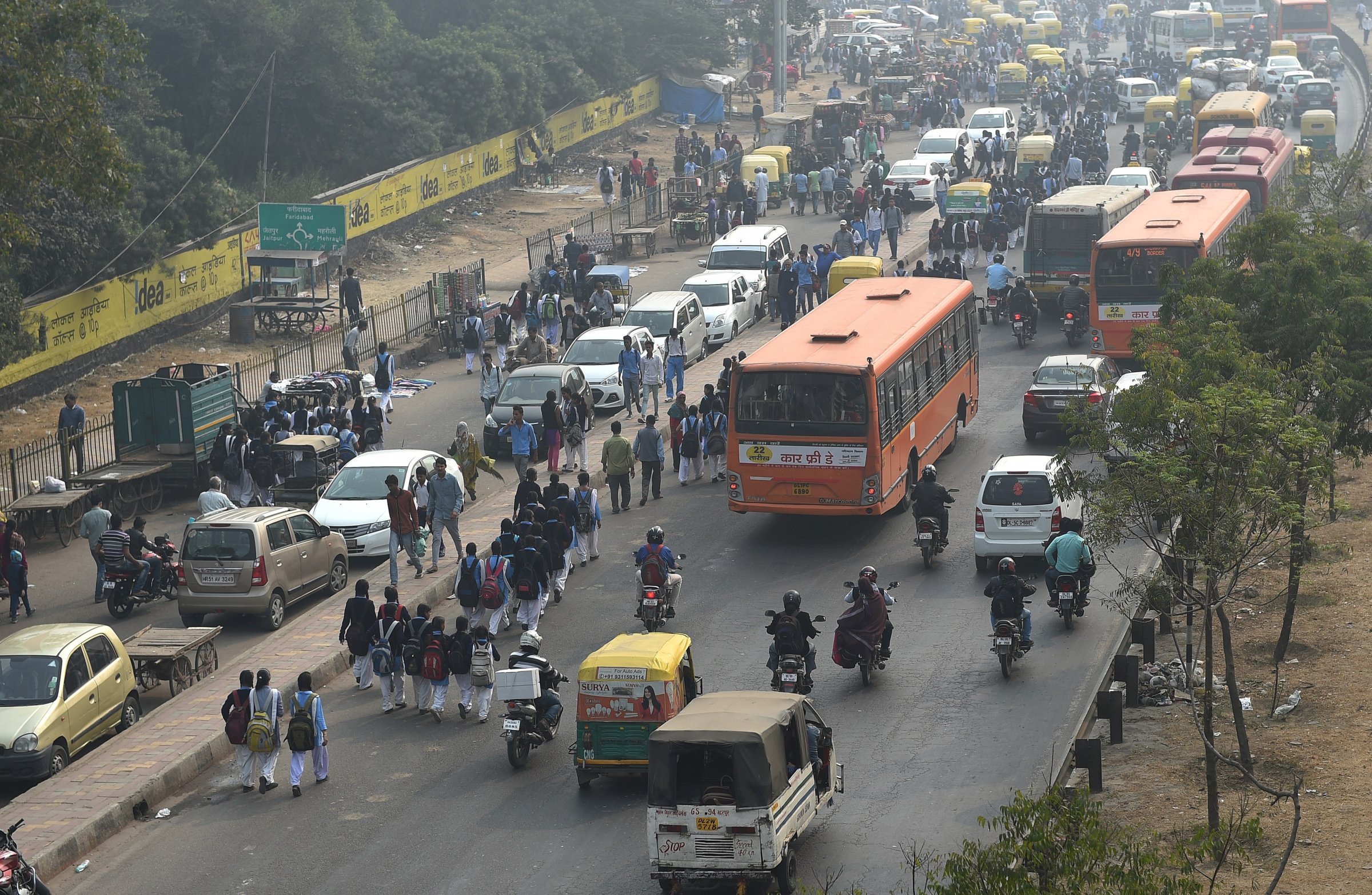
As the world’s leaders congregated in Paris to discuss solutions to global warming, two of its biggest cities encountered some of the worst pollution they have seen in recent times — with significantly different government reactions.
While authorities in China’s capital Beijing issued an “orange alert,” warning citizens to stay inside and suspending outdoor activities in schools, there was no such warning given in India’s capital New Delhi, the Times of India newspaper reported.
True, Beijing’s particulate-pollution (PM 2.5) levels crossed 600 micrograms per cubic meter on Monday — over 24 times the World Health Organization’s permissible threshold — but the Indian capital was not far behind with its most polluted neighborhood showing readings of around 530.
The problem is that Delhi has no formal mechanism for issuing pollution-related alerts to its citizens, despite being deemed the world’s most polluted city by some measures.
At the climate talks in Paris, meanwhile, Indian Prime Minister Narendra Modi placed the responsibility of mitigating global pollution squarely on the world’s richer and more developed nations, repeating India’s long-held stance that Western countries should ratify the Kyoto Protocol.
More Must-Reads from TIME
- How Donald Trump Won
- The Best Inventions of 2024
- Why Sleep Is the Key to Living Longer
- Robert Zemeckis Just Wants to Move You
- How to Break 8 Toxic Communication Habits
- Nicola Coughlan Bet on Herself—And Won
- Why Vinegar Is So Good for You
- Meet TIME's Newest Class of Next Generation Leaders
Write to Rishi Iyengar at rishi.iyengar@timeasia.com